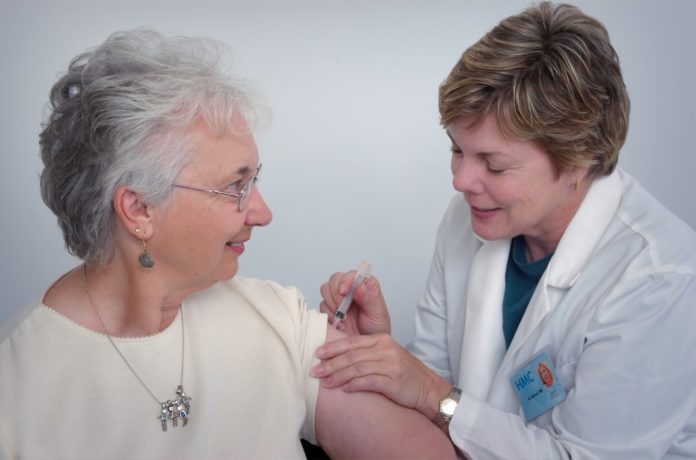
Spanish
Dutch
French
German
Norwegian Bokmål
Polish
Swedish
The healthcare system in Alicante has faced significant challenges this winter, with hospitals and health centres collapsing under pressure due to alarmingly low vaccination rates among the elderly.
Data from the Ministry of Health reveals that as of December 26, only 55.7% of people over 65 had received the flu vaccine. This figure is four percentage points lower than the same period last year.
Meanwhile, just 21.29% of individuals aged 60 to 69, 37.01% of those aged 70 to 79, and 49.21% of those over 80 had been immunized against COVID-19.
Compounding the issue is the low vaccination rate among healthcare workers. Among staff at social-health centres, only 16.5% had received the flu vaccine, while hospital and health centre personnel achieved a slightly higher rate of 35.9%.
The Valencian Society of Preventive Medicine and Public Health has deemed these rates “very low,” attributing them to the saturation of healthcare services experienced throughout January in the province.
Vaccination Campaign Challenges
Efforts to vaccinate the population are ongoing. The Ministry of Health has maintained vaccination campaigns in health centres, allowing residents to get immunized without an appointment. However, mobile vaccination units have already completed their rounds in municipalities, and extraordinary vaccination events, such as those held in schools and areas affected by the Dana, have concluded.
Currently, anyone wishing to be vaccinated must visit their local health centre.
Healthcare workers also have access to vaccination points in hospital preventive spaces, with mobile units targeting staff in various departments. Despite these efforts, Dr. Juan Francisco Navarro, president of the Society of Preventive Medicine, has urged the Ministry of Health to intensify the campaign this January to increase vaccination rates by at least 10–15%.
However, the Health Department has no plans for further extraordinary campaigns, leading to concerns about expiring vaccine stocks.
Recommendations for Future Campaigns
Dr. Navarro has emphasized the need for innovative approaches to future vaccination campaigns. One proposal is to delay the start of campaigns, which traditionally begin in October.
He argues that this timing is counterproductive, as most people are not thinking about vaccines during the warm, beach-going months. He advocates for a later start to better align with public readiness.
Mass vaccination centres could also play a pivotal role in increasing immunization rates. These centres, he believes, could supplement existing healthcare facilities by providing additional opportunities and leveraging the population’s herd effect.
For those over 80 and the severely immunosuppressed, Dr. Navarro recommends active recruitment using a registry system to ensure these high-risk individuals are vaccinated. He describes the current vaccination rates among this demographic as “unacceptable.”
Addressing Low Immunization Rates Among Healthcare Personnel
The Valencian Society of Preventive Medicine has also highlighted the need to increase vaccination rates among healthcare workers, particularly those in social-health centres caring for immunosuppressed patients.
Current rates of 20–30% for flu and COVID-19 vaccines are insufficient. Dr. Navarro stresses the importance of healthcare professionals leading by example, both by getting vaccinated themselves and by promoting vaccination to others.
Vaccinations in Schools
The Society also advocates for vaccinating children in schools, which they consider a crucial step in controlling the spread of transmissible viruses. Intranasal vaccines, which have shown success in children aged 2 to 5, are seen as a promising tool for achieving high vaccination rates among school-aged children.
These measures, combined with improved strategies and greater public awareness, are critical to preventing a repeat of this winter’s healthcare crisis in Alicante.
Spanish
Dutch
French
German
Norwegian Bokmål
Polish
Swedish











